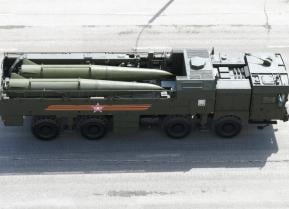Global Security Realigned: How Russia's Invasion of Ukraine Reshapes the Indo-Pacific
Russia's invasion of Ukraine on February 24, 2022, has not only tested the resilience of the international order in the Euro-Atlantic but also accentuated pre-existing security dilemmas in the Indo-Pacific, particularly around Taiwan and the Korean Peninsula.
Summary: Russia's invasion of Ukraine on February 24, 2022, has not only tested the resilience of the international order in the Euro-Atlantic but also accentuated pre-existing security dilemmas in the Indo-Pacific, particularly around Taiwan and the Korean Peninsula. This aggression underscored the interconnected security dynamics between Europe and the Indo-Pacific, prompting the Quad leaders to reassert their commitment to a free and open Indo-Pacific on March 3, 2022. Western democracies, recognizing China as the principal challenge, have since enhanced their strategic and defense cooperation within the Indo-Pacific through various means including strengthening bilateral and multilateral alliances, military exercises, and advanced technology partnerships. This evolving security architecture aims to deter aggression and maintain a rules-based international order, reflecting a strategic convergence among allies and partners. Leadership, particularly from the United States, is deemed crucial in sustaining this momentum against the backdrop of historical lessons on isolationism and the critical need for a proactive stance in global affairs.
On February 24, 2022, Russia’s invasion of Ukraine challenged the existing international order in the Euro-Atlantic community. In the Indo-Pacific, it brought pre-existing security challenges into sharper relief. Security concerns were heightened across the region and acquired greater definition in the Taiwan Strait and the Korean Peninsula. Russia’s aggression called into question the staying power of a rules-based international order while advancing the recognition of its inseparable nature in the Indo-Pacific and Europe.
On March 3, 2022, Quad leaders met to consider the implications of Russia’s invasion of Ukraine and the possible spillover effects of the European crisis on the Indo-Pacific. The Quad’s Joint Statement reaffirmed its commitment to a free and open Indo-Pacific, marked by its goal for states to be free from “military, economic and political coercion.” Japanese Prime Minister Fumio Kishida emphasized that “unilateral changes to the status quo like this should not be allowed in the Indo-Pacific region,” along with the importance of realizing a free and open Indo-Pacific. His remarks were later incorporated into multiple policy documents issued by democratic governments referencing the importance of peace and stability in the Taiwan Strait.
Reflecting an emerging strategic convergence among Western democracies, then British foreign secretary Liz Truss underscored to the Atlantic Council the importance of sustaining Western unity in the face of challenges to the international order in Europe and Asia. In her words, “Conflict anywhere threatens security everywhere.” Truss then called on Western democracies to stand together to “face down aggression around the world – from the South China Sea to Eastern Europe.”
Since then, the United States, Japan, Australia, the Republic of Korea, the United Kingdom, Germany, France, Canada, NATO, and the European Union have released strategic policy documents addressing the challenges to order in the Indo-Pacific, consistently viewing China as the primary strategic challenger to the region and the rules-based international order. In the Indo-Pacific, responses consist of building and strengthening the deterrence framework, involving dedicated diplomacy to strengthen existing alliances, advancing multilateral security cooperation, and reinforcing strategic partnerships, representing a continuing evolution of the Indo-Pacific security architecture.
While the United States’ bilateral alliance structure remains the foundational element for regional security, the modern security structure has expanded beyond the Cold War Hub and Spokes construct to include bilateral and trilateral security cooperation among U.S. allies. This includes increasing security ties among allies independent of the United States and strategic partnerships, such as Japan’s reciprocal access agreements with Australia and the United Kingdom to facilitate defense cooperation, yielding a flexible, overlapping, and inclusive lattice-like security structure.
Bilateral alliances have also been strengthened, with the United States’ partnerships with Japan, Australia, South Korea, and the Philippines reaching a high point in defense cooperation.
Quad members Australia, India, and Japan have also moved to strengthen their respective bilateral ties and defense and security relationships, highlighted by their Malabar exercises. These alliance-based military exercises in the western Pacific have reinforced diplomacy, expanding in participants and complexity – aimed at increasing interoperability. Trilateral security cooperation has also intensified, particularly in the United States’ trilateral relationships between Japan and Korea, Australia and Japan, and Japan and the Philippines.
The partnership between Australia, the United States, and the United Kingdom has continued to advance security cooperation on submarines and in advanced research, including critical quantum technologies, AI, electronic warfare, cyber and hypersonic capabilities, and counter-hypersonic capabilities. Building on Europe’s growing interest in the Indo-Pacific, Australia, Japan, and the United States have encouraged increasing engagement in the region. “2+2” ministerial dialogues between Australia and the UK and between Japan, Australia, France, and Germany are now regularized.
Each case includes a reaffirmed commitment to a free and open Indo-Pacific and opposition to using force or coercion to change the status quo while highlighting the importance of peace and stability in the Taiwan Strait. Although Europe will focus on Russia for the foreseeable future, and a security presence in the Indo-Pacific will not be significant, the normative value of European engagement should not be underestimated. Additionally, Indo-Pacific democracies, namely Japan, Australia, and the Republic of Korea, have strengthened Ukraine’s resistance to Russian aggression financially and materially. The Joint Statement of the NATO-Japan summit, January 31, 2023, recognized that “the free and open international order based on the rule of law is now at stake.”
In sum, the response of Western democracies to security challenges in Europe and the Indo-Pacific points to a growing strategic convergence and new deterrent diplomacy backed by increasing defense and security cooperation within the region and with European allies. While the policies of Western democracies are not identical, they are overwhelmingly congruent and mutually reinforcing toward maintaining a rules-based international order in the Indo-Pacific and Europe, reflecting universal values and supporting a balance of influence based on the balance of power.
Maintenance of this strategic convergence will require leadership. However, the unforgiving reality is that allies and strategic partners in both the Indo-Pacific and Europe look to Washington. Failure to lead now would mark a strategic turning point with a retreat to an earlier America when high tariffs helped crater the international economy and disinterest in the building crises in Europe and Asia only emboldened aggressors.
James J. Przystup is a Senior Fellow with the Hudson Institute’s Japan Chair. He analyzes and studies the Indo-Pacific region, focusing on alliance management, Europe’s growing interest in the area, challenges posed by China, and the existing international order.
Image: Shutterstock.com.


